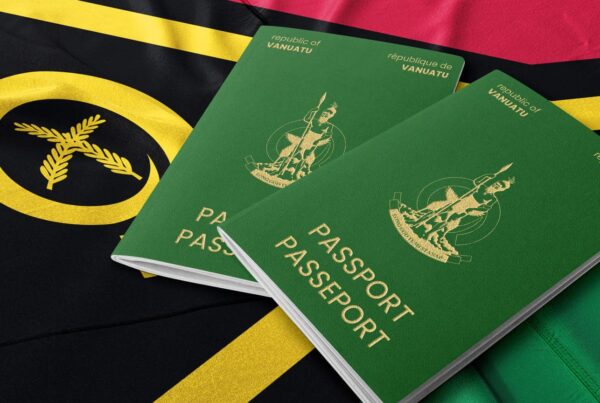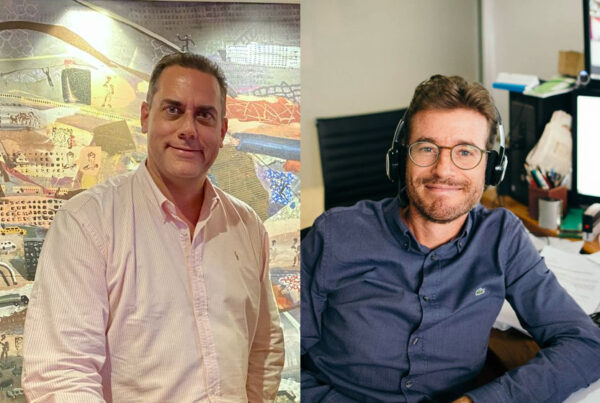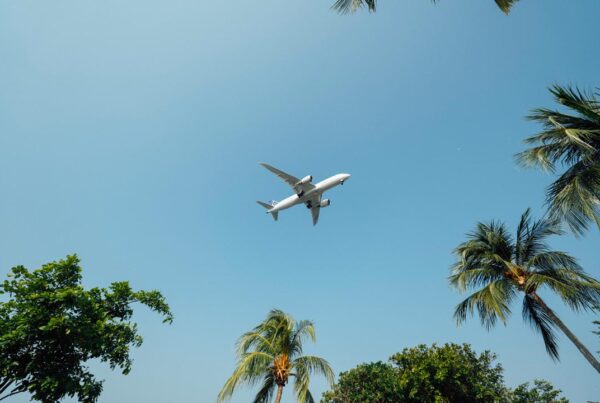Read the original publication (paywall)
“Never again”—that’s the feeling among high-net-worth individuals after 18 months in which global travel has been limited by the Covid-19 pandemic, said Jean Francois Harvey, global managing partner of Harvey Law Group, an international law firm based in Montreal that helps clients immigrate to new countries.
As international borders begin to reopen and the globe confronts a new, more contagious coronavirus variant, those who can are making plans to ensure they’ll never be so limited in their movement again. High-net-worth individuals are seeking real estate investments in historically safe real estate markets across Europe, the United Kingdom and the U.S., adding even more demand for prime properties in markets that are already seeing frenzied price growth.
“During COVID, the only way to get into another country was to be a resident or a citizen,” Mr. Harvey said. “Suddenly, people realize that to have only one residence or one passport is not the best.”
During the pandemic, the ultra-wealthy have pursued citizenship and residence-by-investment programs in record numbers. The industry, which has traditionally catered to high-net-worth individuals from emerging markets, has seen a newfound demand from residents of western countries like the U.S., Canada and Australia who are looking for second options in Europe and the Caribbean to live and work.
“If you’re a high-net-worth, ultra-high-net-worth individual, all you want is options in life and you want to diversify and hedge against risk as much as possible,” said Dominic Volek, group head of private clients at Henley & Partners, a London-based firm specializing in residence and citizenship by investment. “But then you have one citizenship and residence. It just makes no sense.”
Record Numbers of Inquiries
During 2020 and 2021, Henley Global saw record numbers of inquiries about citizenship- and residence-by-investment programs. Since the outbreak of the pandemic, the firm has seen an average increase in inquiries of 46% each month. Their client base has also changed—with an increase in demand of 47% from Canadians, 41% from Australians and 31% from Britons, and 208% from Americans.
“We’ve always had clients out of the U.S., but more recently, it’s by far our single biggest jurisdiction of new clients,” Mr. Volek said. “It’s bigger than any individual emerging market.”
Some Americans cite former President Donald Trump’s handling of the pandemic as a reason to find alternative residency, Mr. Volek said, since even the wealthiest couldn’t escape the U.S. when travel shut down. As more countries turned away people traveling from the U.S. due to high infection rates, the passport declined in value.
“It didn’t matter how many planes you had or that you had this great passport,” Mr. Volek said. “So all of a sudden, wealthy people realized they didn’t have as much flexibility as they thought they did.”
Interest also spiked leading into the November 2020 election, Mr. Volek added, as uncertainty led people to question how the U.S. government would handle major issues like the pandemic and taxation going forward.
“As soon as Mr. Biden was elected, there was a taxation-related wave of immigration,” Mr. Harvey said. “People suddenly expected that the government of the U.S. would be taxing more.”
At the same time, demand from U.K. citizens was peaking as Brexit finally became reality, and British citizens lost residency rights to the European Union.
Likewise, demand for foreign passports has been high in South Africa, as citizens there have sought refuge from the country’s political and economic instability, as well as visa-free travel to European countries.
Europe to Benefit From the Boom
Andy Brown began to look into alternative citizenship in 2019. The Johannesburg-based mining executive said he hoped to ensure a “safe, secure and predictable environment” leading up to his retirement.
“It’s all about securing my future now,” he said.
While he originally hoped to immigrate to the U.S., he changed plans in 2021 as it became evident that the pandemic had slowed the pace of the immigration process there.
He chose to look into one of the most popular paths to EU citizenship—Portugal’s Golden Residence Permit Program, which allows those who invest at least €500,000 (US$568,230) in real estate or €350,000 in venture capital the right to apply for residency. After five years of legal residency, investors can apply for citizenship.
The program has awarded 10,170 visas since its inception in 2012 and generated €5.5 billion in investment, with China, Brazil and South Africa leading the demand, and the U.K. and U.S. beginning to represent a larger share of applications.
For Mr. Brown, the most important part wasn’t the return on his investment—but to secure citizenship and get access to visa-free travel across Europe.
“I wanted to invest in a program that was regulated, in this case, by the Portuguese government, therefore presenting low risk to my investment,” he said. “At my age, I realized I have a limited window of opportunity to capitalize on the investment portfolio before I retire and relocate.”
While Portugal offers the quickest path to citizenship, it has developed a backlog in recent years, Mr. Harvey said. Other countries with similar programs have attracted more applicants lately, such as Spain, which has a 7-year path to citizenship, and Italy, which has a 10-year path. Another popular option, Malta, requires an investment of €600,000 and a three-year residence period, or in some cases, €750,000 and a 12-month residence period.
Other Destinations Beyond Europe
Most clients, though, are looking for multiple options.
“I don’t have a client from the U.S. getting just a single citizenship,” Mr. Volek said.
The Caribbean nations of Antigua and Barbuda, Dominica, Grenada, St. Kitts and St. Lucia—which all have been traditionally attractive to affluent individuals holding passports from countries with limited travel access—have become attractive even for Americans, due to their more isolated locations. There, citizenship is possible for $150,000 or less, and can take less than three months.
“It’s just optionality,” Mr. Volek said. “If I have the financial capacity to do it—why would I not just do it?”
Meanwhile, Foreign Investment to the U.S. Returns
Since Nov. 8, Ilyse Dolgenas has been busier than usual.
That was the day that the U.S. borders reopened, and it also meant a wave of incoming calls to Ms. Dolgenas, special counsel at Withers, a firm that assists high-net-worth clients with luxury real estate, primarily in New York.
“Right away, I had some international clients call me just to talk about the market,” Ms. Dolgenas said. Despite concerns about city life returning back to normal, New York’s real estate market has been in a frenzy—fueled mostly by demand from domestic buyers, and now boosted by an increase in foreign investors.
“Foreigners don’t want to be late to the party,” she added. “They are in touch with their brokers and they are definitely shopping.”
Ms. Dolgenas said that New York would usually see several dozen contracts signed on residential apartments over $4 million each month. In the last few weeks, she’s seen between 40 and 60.
“There’s a cachet to owning a property in New York,” Ms. Dolgenas said.
Despite fears that Covid-19 would upend the housing market and change where people wanted to live, foreign investors have returned to the same urban markets that had been desirable pre-pandemic, like New York, Miami, London and Vancouver.
While American and British clients have primarily been interested in countryside vacation homes and villas, investors from China, Vietnam and other Asian markets are still tempted to buy in downtown areas where they can find an investment property or pied-a-terre.
“They’re sticking to what they know: a high-density district,” Mr. Harvey said.
Is Increased Investment Migration Here to Stay?
In the last few weeks, as news of the Omicron variant sparks worry that countries might implement new restrictions, Mr. Harvey has seen a rise in demand.
Moreover, those seeking citizenship through real estate investment are no longer just looking for visa-free travel—they’re also applying in order to secure better educational opportunities or government-supported healthcare.
“It went from a product of convenience to a life choice,” Mr. Harvey noted. “Motivations are a lot more personal… People are saying, ‘Let’s have an exit strategy.’”





